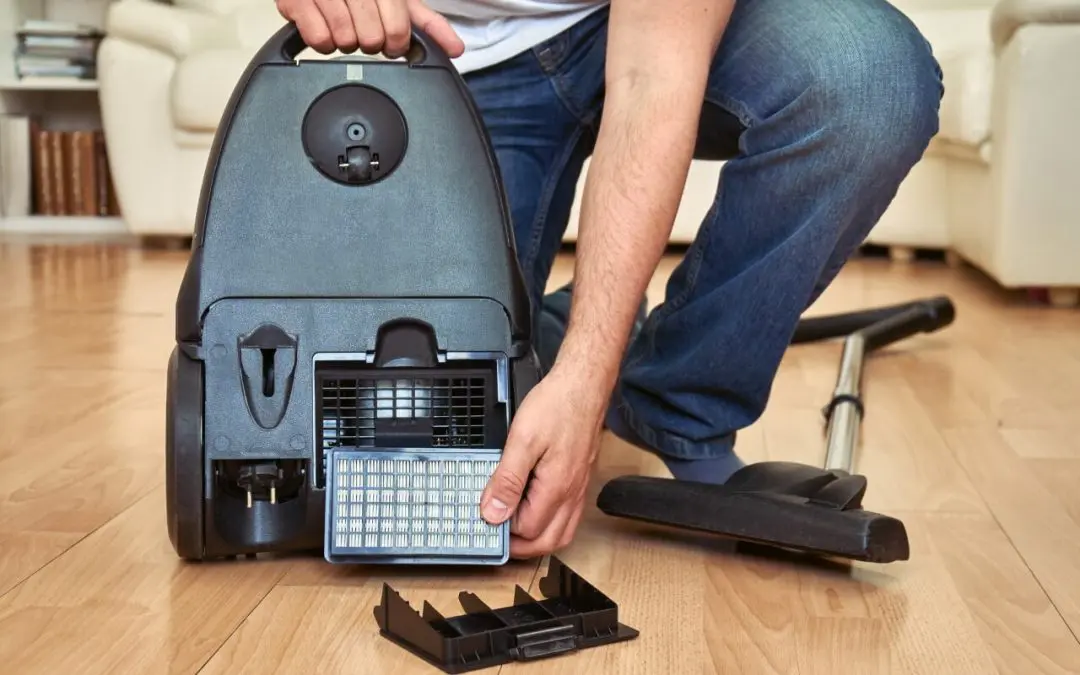How Do HEPA Filters in the Home Work?
HEPA stands for high-efficiency particulate air. HEPA filters remove 99.7% of particles from the air that are 0.3 microns or larger. These particles include dust, dander, and pollen. If the label says HEPA-like filter, this is not a true HEPA filter. True HEPA filters contain a mat of tightly woven fibers that air passes through, and particles that are 0.3 microns get trapped in the filter. Some HEPA filters also come with a carbon-activated pre-filter.
HEPA Filters in Vacuums
A HEPA filter vacuum is a worthy investment for any household, especially those homes with pets or allergy sufferers. This kind of vacuum contains a HEPA filter and traps smaller particles than a regular vacuum. Carpets and fabrics harbor allergens like dust mites and pollen and a HEPA filter vacuum will help remove these particles.
HEPA Filters in Air Purifiers
A household air purifier is an important device for improving indoor air quality. Air purifiers are more effective when equipped with a HEPA filter. Use a purifier for every bedroom in the house, and one for the living and family rooms. Pay attention to how many square feet the device is designed to purify so that you choose the right one for your space.
HVAC System Filters
All HVAC systems have filters that need to be changed regularly. Upgrade your HVAC filters to HEPA filters. Because they capture more particulates, you’ll need to change these filters more often. However, the air circulating within your home will be significantly cleaner.
HomeVantage Home Inspections provides inspection services to homes in Northern New Jersey. Contact us to book an appointment.

